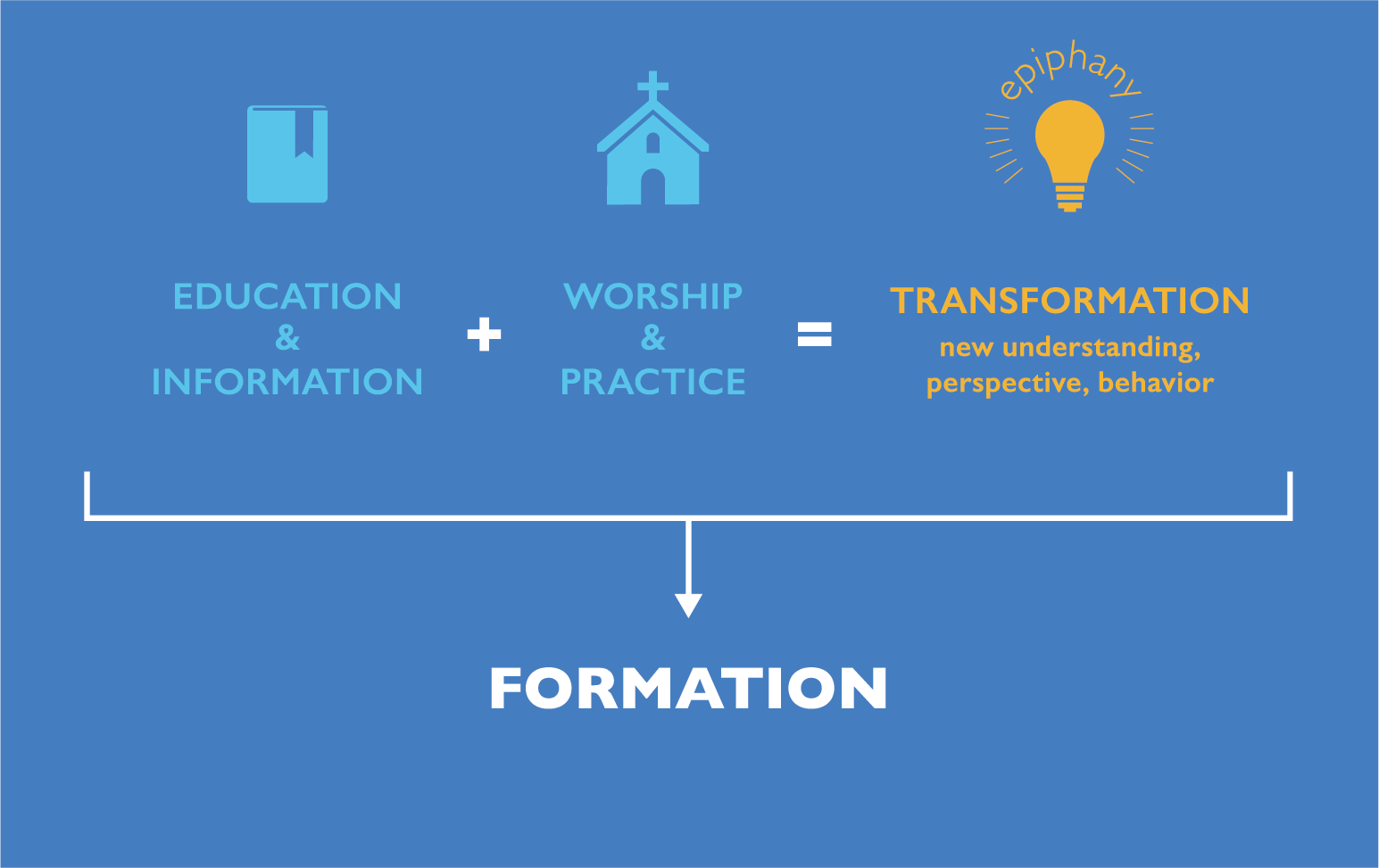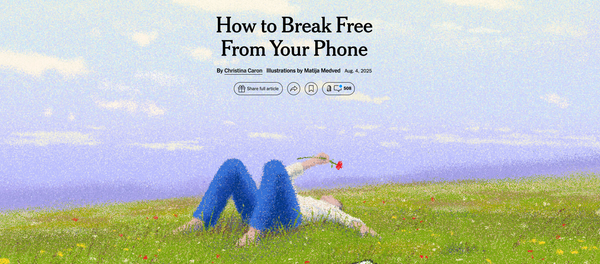Formation v. Education, Part 1
Does it really matter what we call it?

Quick program note: With Daddy-Yona Month in full swing, I will be out for a week beginning Friday. In addition to today's post, expect the usual media recs on Thursday this week and a return to our usual schedule (with Part 2 of this little debate) on August 11.
In the months before I was hired as the first digital missioner in what was then called the Center for the Ministry of Teaching (now simply Lifelong Learning) at Virginia Theological Seminary, my soon-to-be colleagues attended the final annual conference of the National Association of Episcopal Christian Education Directors (NAECED).
In the following year, the organization would change its name to Forma, which most of you know is the network of Christian formation leaders in the Episcopal Church and beyond.
In my view, that first name shift mostly reflects a simple change in subject—from teaching to learning—in addition to the wise shortening of the organization's name. That seems all to the good.
My colleague (and fellow Faith Formation Creators Collective plenary facilitator) Mary Hess has a wonderful presentation and article about the "new culture of learning," which I commend and is connected to all this. The shift to emphasizing learning rather than teaching is a piece of this puzzle, and it represents a longstanding development in mainstream educational thinking.
The second change reflects a set of more subtle and philosophical points related to the nature of faith and the Church, points that have been echoed by lots of practitioners and the organizations that represent them.
The change itself is this:
Now, many readers of this newsletter were already influential leaders at the time, and I'll look forward to hearing how y'all would fill in the gaps and maybe oversights in this account. I've also included below as further reading some important resources and documents from the decade or so of the transition.
But basically, my question for us the next couple weeks is this: Is it worth the cost (in clarity and popular accessibility?) for what we gained (in precision and positioning) by making the shift from education language to formation language?
Here's the first part of what I think we'd need to consider to answer that.
Pro: Faith is 'caught' not 'taught'
For me, this is the most compelling reason for the change. Whenever we use words like teaching, learning, or education, we are bound to summon people's memories of their childhood experiences with schooling. And those memories tend not to capture perhaps the most important thing about what makes learning faith such a distinctive experience.
Let's lay aside Sunday school as a part of this question (for a moment—see below) and think about people's Monday through Friday classroom experience. Whether fair or not to every K-12 teacher and curriculum, there's no getting around the fact that when we say "education," most people think about taking in information (history dates, science principles, etc.) and developing technical abilities (literacy skills, mathematical calculation, etc.).
Most people do not associate the word education with participants being ... well, formed as human beings. I think that development would make John Dewey roll over in his grave, but that's another issue.
For me, the best illustration here is moral or character formation. If you forced someone to speculate on the difference between receiving an education in ethics or morality versus being engaged in moral formation, you'd probably hear about the former being a chance to encounter and understand various ethical theories and the like and the latter being about actually practicing being a morally responsible person. Attending a high school philosophy class versus participating in a program like scouting might capture this distinction.
I think it's totally reasonable to view discipleship in something like that same light. It's a great reason to use the word formation. We don't become disciples by knowing a lot about the Bible and theology—at least not only by this knowledge.
Pro(-ish?): Formation distances us from Sunday school (maybe)
If I had to guess, I would say the larger issue in this change actually had to do with a growing awareness that Sunday school, at least as it had been practiced among 2–3 generations of young Americans in the mid-to-late twentieth century, hadn't been particularly effective in establishing and nurturing faith in the way churches might have hoped. (And most churches can no longer rally the volunteer force necessary to feed the Sunday school beast anyway.)
There was in this period, after all, a reasonable preoccupation with the trend that at the time was still mostly viewed through the lens of secularization and is now discussed as the growth of the nones. "Maybe we need new definitions—and, more importantly, new approaches—if our age-segregated, schooling model, instruction-oriented paradigm hasn't been working," was the theory. Fair enough.
I certainly don't disagree that we were right to want to evolve the model. For me, the question is whether picking a different word did much to accomplish that.
I do think there has been a significant mindset shift among leaders. We're much likelier to see more active pedagogies, as well as less singular emphasis on the content of the tradition. We're seeing much more balance via greater emphasis on how individuals and communities make sense of the tradition and actually make it a practice.
Have the members of our congregations really followed and internalized this distinction and connected it to the use of a different word? I'm skeptical. But even just getting leaders thinking differently is a big accomplishment, and I would never want to diminish that.
The case for formation is captured pretty well by this excellent sticker produced by the (now decimated) Episcopal Church Office of Faith Formation. The education of which we previously spoke is, as the graphic implies, just part of the equation.

I'll have more when we return to our regularly scheduled programming on what I think this transition might have cost us. Spoiler: I'm not saying we should go back. I just think there's a baby/bathwater issue we might more effectively address.
Further Reading
- "Did You Read the Report?" by Sharon Ely Pearson
- The Charter for Lifelong Christian Formation (adopted by General Convention in 2009)
- "Lifelong, Lifewide Christian Formation: Embracing a Faith that Celebrates Life" by Lisa Kimball



